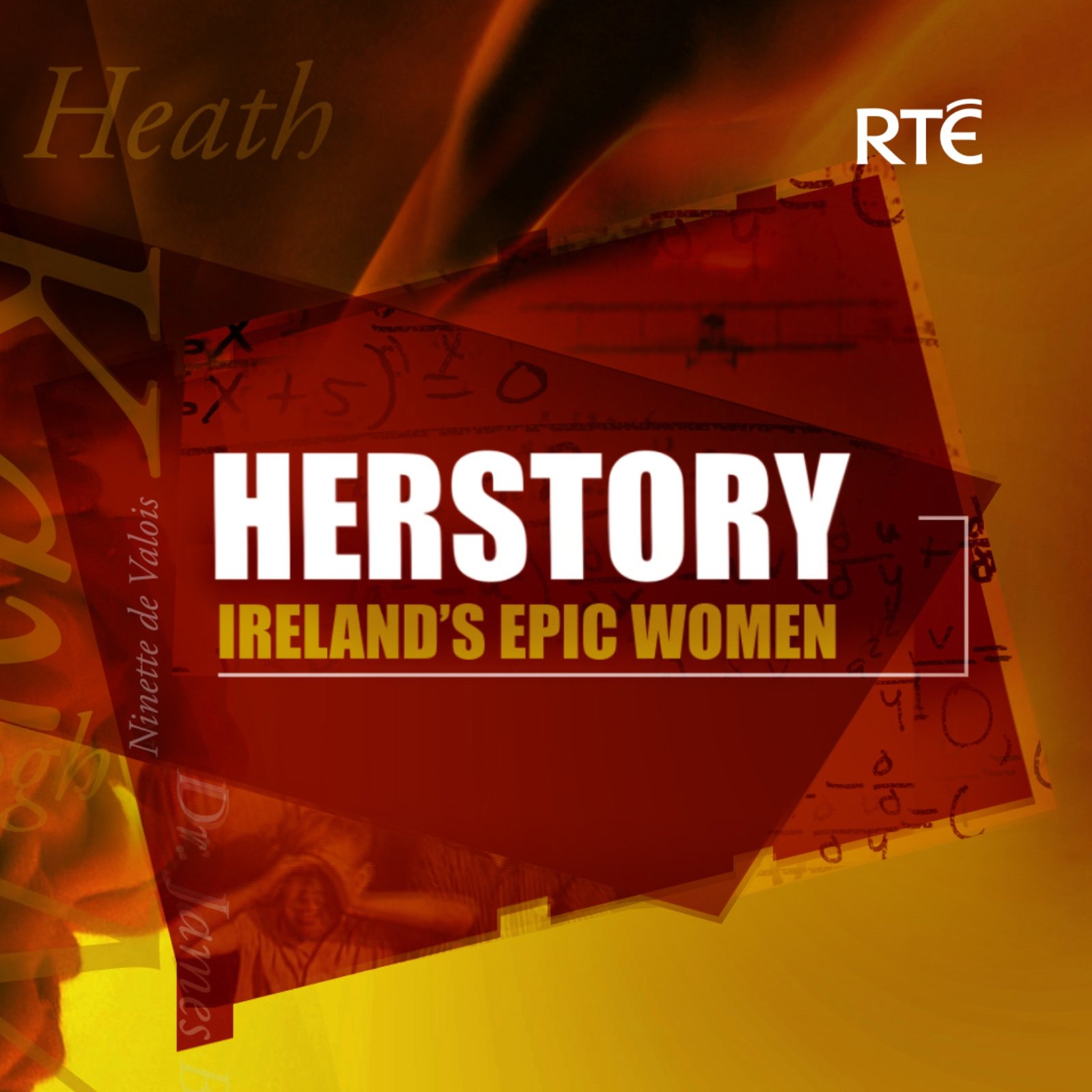Episodes
Cynthia Longfield, 'Madam Dragonfly', was born in London in 1896 to Anglo-Irish parents. The family divided their time between London and the ancestral home in Cloyne, Co. Cork, where she enjoyed roaming the countryside.
Published 03/04/20
Fanny’s memory – and that of her sister, Anna – has been overshadowed by brother Charles, but she was a trailblazer in her own right. In her lifetime, her poetry was celebrated by Irish nationalists and her activism helped to bring many Irish and Irish-American women into politics.
Published 03/04/20
Isabel 'Ida' Mitchell typifies the emergence of a new group of Irish women, particularly from Ulster, in the last quarter of the nineteenth century – the female Presbyterian missionary. Often the daughters of churchmen, they were usually middle-class and educated.
Published 03/04/20
Published 03/04/20
Fanny Durack, daughter of Irish immigrants to Australia, won the first gold medal in women’s Olympic swimming in July 1912. Fanny created even more waves when she rejected a thick, modest woollen swimsuit with ‘as much drag as a sea-anchor’ in favour of a close-fitting suit in which she won the 100m freestyle.
Published 02/26/20
Mary Agnes Walsh was born in Co. Monaghan in February 1821. She is now remembered as Mary Lee, one of the most prominent Australian suffragists, but she also advocated on behalf of women workers and asylum residents.
Published 02/26/20
Dr. Maura Lynch was one of two Irish doctors who manned a 200-bed hospital in Angola during the Angolan civil war. She and her colleague treated patients from both sides of the conflict and when a neighbouring clinic shut down, Maura crossed 80km weekly to offer medical support to the people of Cuamato.
Published 02/26/20
Kathleen Lonsdale made important scientific contributions, published prolifically, and worked tirelessly for humanitarian goals. She was as passionate about science as she was about prison reform and used her own learned experiences to influence positive change.
Published 02/18/20
Mary MacSwiney was an Irish educationalist and politician. She campaigned across America for support of Irish Independence. When Éamon de Valera resigned from Sinn Féin in 1927, Mac Swiney stepped into his shoes and became the party leader.
Published 02/18/20
Eileen Gray lived in Paris for most of her life. She moved there in 1907, when the city was a hot-spot for writers and artists. She deservedly gained a reputation as the finest Western exponent of the Japanese lacquer technique and, later, was internationally acclaimed as a pioneering furniture designer and self-taught architect.
Published 02/18/20
Oscar Wilde was not the first of his family to earn acclaim as a writer – it was his mother Lady Jane Wilde that first published poetry and short stories. She wrote controversial articles about the neglect of women and was often pro-Irish independence and anti-British writing. To conceal her true identity, Jane’s byline read Speranza meaning Hope.
Published 02/12/20
The world has a fascination with the city that never sleeps and few have captured its contradictions but one who did was a character known only as "The Long Winded Lady", a lady who must've seemed to her readers to be the definitive New Yorker but was actually a Dubliner called Maeve Brennan.
Published 02/12/20
Elizabeth Gurley Flynn started her activist life as a 16-year-old schoolgirl, calling on American workers to rise in front of a red flag on a makeshift stage on a New York street corner. Quickly becoming a jawsmith for the Industrial Workers of the World (IWW), she was devoted to women, the working class, anti-racism, and anti-capitalism.
Published 02/12/20
Doris Fleeson was a political journalist and columnist who became the first woman in the United States to have a nationally syndicated column. Fleeson was a real watchdog and her political writings and scathing take downs made powerful men fearful.
Published 02/05/20
Carmel Snow possessed an eagle eye, transforming Harper’s Bazaar, a tired and dowdy magazine, into a dynamic, game-changing publication. During her career, she made household names of Andy Warhol, Truman Capote, Richard Avedon, Lauren Bacall, Cecil Beaton, and Henri Cartier-Bresson.
Published 02/05/20
Irish suffragette Hanna Sheehy Skeffington was at the forefront of the fight for women’s rights as equal citizens of Ireland. As a republican, Sheehy Skeffington also fought for an independent Ireland, but always related this struggle to how it would impact on women.
Published 02/05/20
This episode is about the feminist, LGBT activist Eva Gore Booth and the moments in her life that shaped her political views. It is evident from her actions and her poetry, that Eva challenged the status quo and used her inherited authority to give voice to workers, women and the LGBT community.
Published 01/27/20
Throughout history, Lynch has been the subject of much debate with some claiming her to be an ambitious courtesan who seduced the heir apparent of the Government of Paraguay, Francisco Solano López. In this episode we examine the truth of Lynch’s life.
Published 01/27/20
A trailblazer in the very literal sense of the word, Lizzie Le Blond was one of the first generation of women to practise mountaineering, breaking societal rules to do so. To avoid causing offense, Lizzie initially climbed wearing a skirt and would only change when out of public sight.
Published 01/27/20
Shining a light on the Irish women throughout the ages who have shaped the arts, business, science, power and revolution. New episodes throughout spring 2020.
Published 01/26/20


